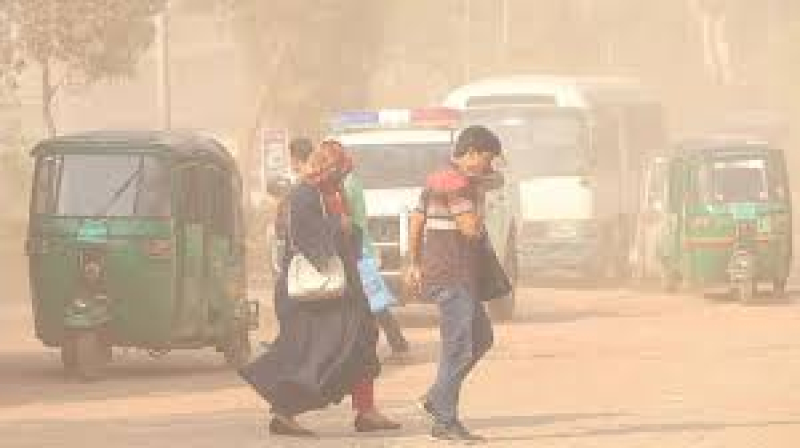- Mojtaba Khamenei Named Iran’s New Leader |
- Iran vows to hit all ME economic hubs if US-Israeli attacks persist |
- Sammilito Islami Bank merger to continue: Governor |
- Biman Suspends Flights to Six Middle East Cities Over Tensions |
- Govt Announces 25pc Rail Fare Discount |
Dhaka’s air ‘worst in the world’ for 2nd consecutive day

Dhaka has been identified as the city with the most polluted air globally, recording an Air Quality Index (AQI) score of 286, categorizing its air as 'very unhealthy' for the second consecutive day this morning.
Yesterday, Dhaka’s AQI score was 257.
This alarming status underscores the severe environmental challenges faced by the city's residents, with air pollution posing significant health risks.
India's Kolkata and Mumbai, along with Pakistan’s Lahore, were ranked closely behind Dhaka, with AQI scores of 269, 240, and 211 respectively, indicating a widespread air quality crisis across several major South Asian cities.
The AQI scale reveals that values between 201 and 300 signify 'very unhealthy' air quality, directly impacting public health. This range indicates a high risk of adverse health effects, urging residents, especially those in vulnerable groups, to take necessary precautions.
Defined by the concentration of five major air pollutants — particulate matter (PM10 and PM2.5), nitrogen dioxide (NO2), carbon monoxide (CO), sulfur dioxide (SO2), and ozone — the AQI serves as a crucial tool for informing the public about daily air pollution levels and potential health implications.
Historically, Dhaka has struggled with persistent air pollution, experiencing the worst conditions during the winter months. Conversely, air quality sees relative improvement with the onset of the monsoon season, illustrating the seasonal dynamics of the city's environmental health challenges.
The World Health Organization (WHO) highlights the grave global health implications of air pollution, attributing approximately seven million deaths annually to air quality-related diseases. These include stroke, heart disease, chronic obstructive pulmonary disease, lung cancer, and acute respiratory infections, marking air pollution as a critical public health emergency, reports UNB.

